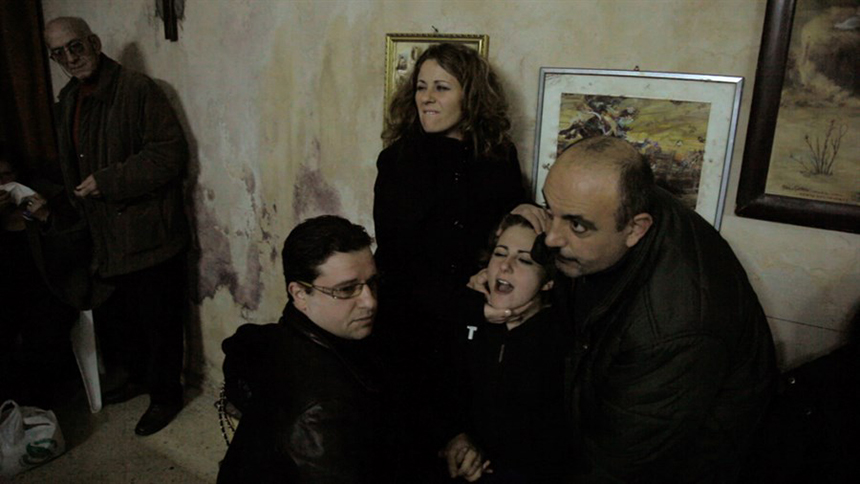Fantasia 2017 Review: DELIVER US, Exorcism in the Open

Exorcisms have been ripe fodder for horror films for decades, so much so that we might not think they actually happen (or at least anymore, in the days of scientific discovery and understanding of certain medical conditions). But on the contrary, not only do they still occur, they are on the rise, so much so that the Catholic Church is churning out priests trained to perform them. Federica di Giacomo's documentary Deliver Us goes inside one particular church in Palermo, Siciliy, to look at the those seeking out exorcisms, and the priests who perform them.
Your perspective on what you see in the film will undoubtably be influenced by whatever is your belief (or non-belief) system. Are these people (varying in gender, age, socioeconomic class) merely mentally ill, have a physical condition as yet undiagnosed, seeking attention, or truly possessed? Are these priests genuine in their efforts, charlatans, con men, or merely trying to uphold the doctrine of their Church? Is this indicative of the Catholic Church's power in Italy, or worldwide?
Di Giacomo takes as neutral a stance as possible on the story she shoots. Obviously, it is not entirely neutral, as she is choosing what makes the final cut, and editingthe scenest in a certain way/order. But there are no interviews of talking heads in the film. Instead, she films what she sees, from meeting between priests and their flock, the people who claim to be possessed, their friends and family: she lets their stories unfold, so the audience can watch the behaviour and draw their own conclusions.
One woman asks, "Am I possessed or am I mad?" Her struggle to understand if what is happening to her is real, even as she writhes on the floor spouting obscenities during her 'exorcism'. This is similar to a young man earlier in the film, one covered in tattoos and piercings, who writhes in a similar way on the floor of the church during a service; di Giacomo follows him later, as it would seem he has issues with his own anger management which have left him isolated. A teenage girl seems to merely go along with her parents' belief that her problems are caused by possession; at least it's an easy answer, as her parents get the priest to bless their home to rid it of demons (and they should burn the black teddy bear).
Then their are the priests: reading from seemingly scribbled notes, using various incantations to rie people of demons. At one point, performing an exorcism via mobile phone. Often talking of the parents' (especially the mother's) responsibility for belief in order to keep the devil out.
Are people reacting as though they are possessed, because these symbols of the Catholic Churc are what they have been supplied with to understand whatever emotional and mental difficulties they are experiencing? Is this merely an easy answer/solution to more complex problems that society is unwilling to deal with? One of the people featured in the doc begins to suggest abuse by a priest; this is never pursued, but the inclusion of this moment by di Giacomo is enough to suggest that, perhaps, these experiences are as much a reaction to pain and trauma as they are possibly real.







